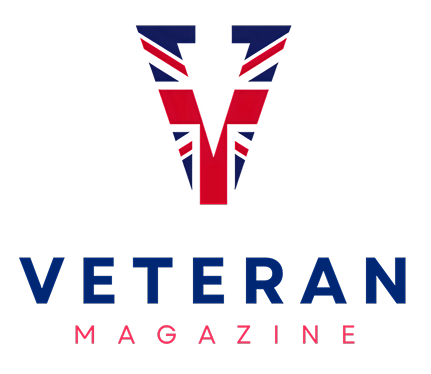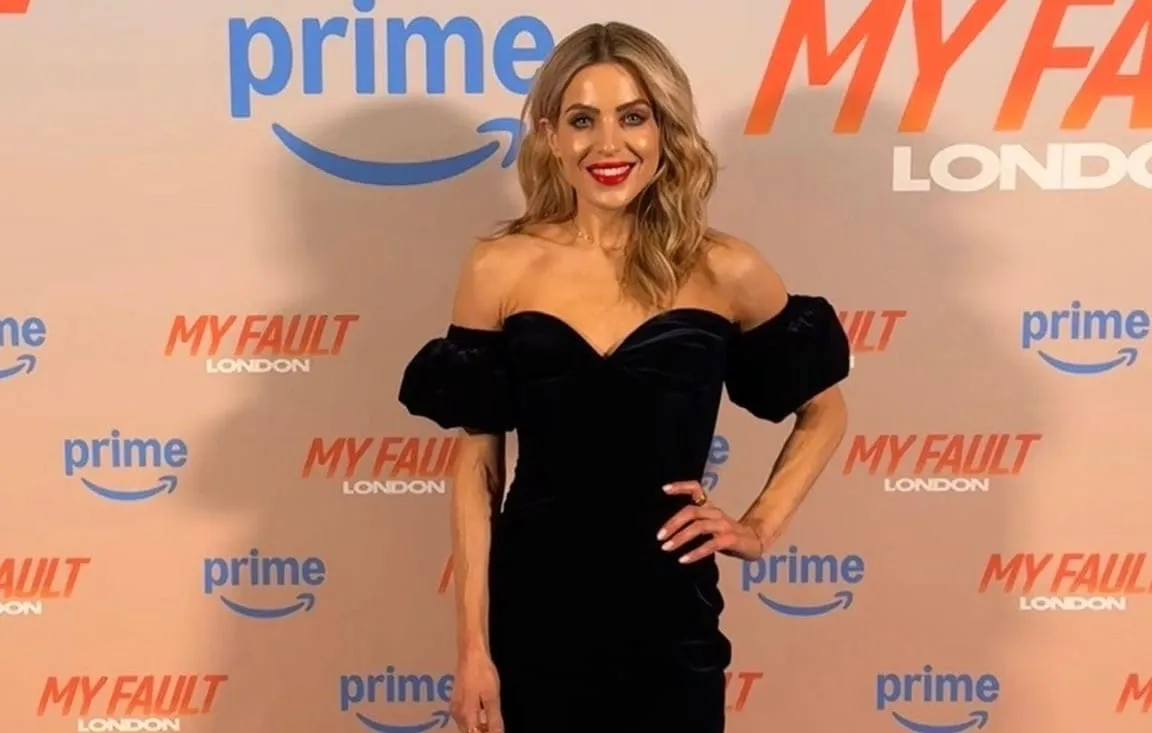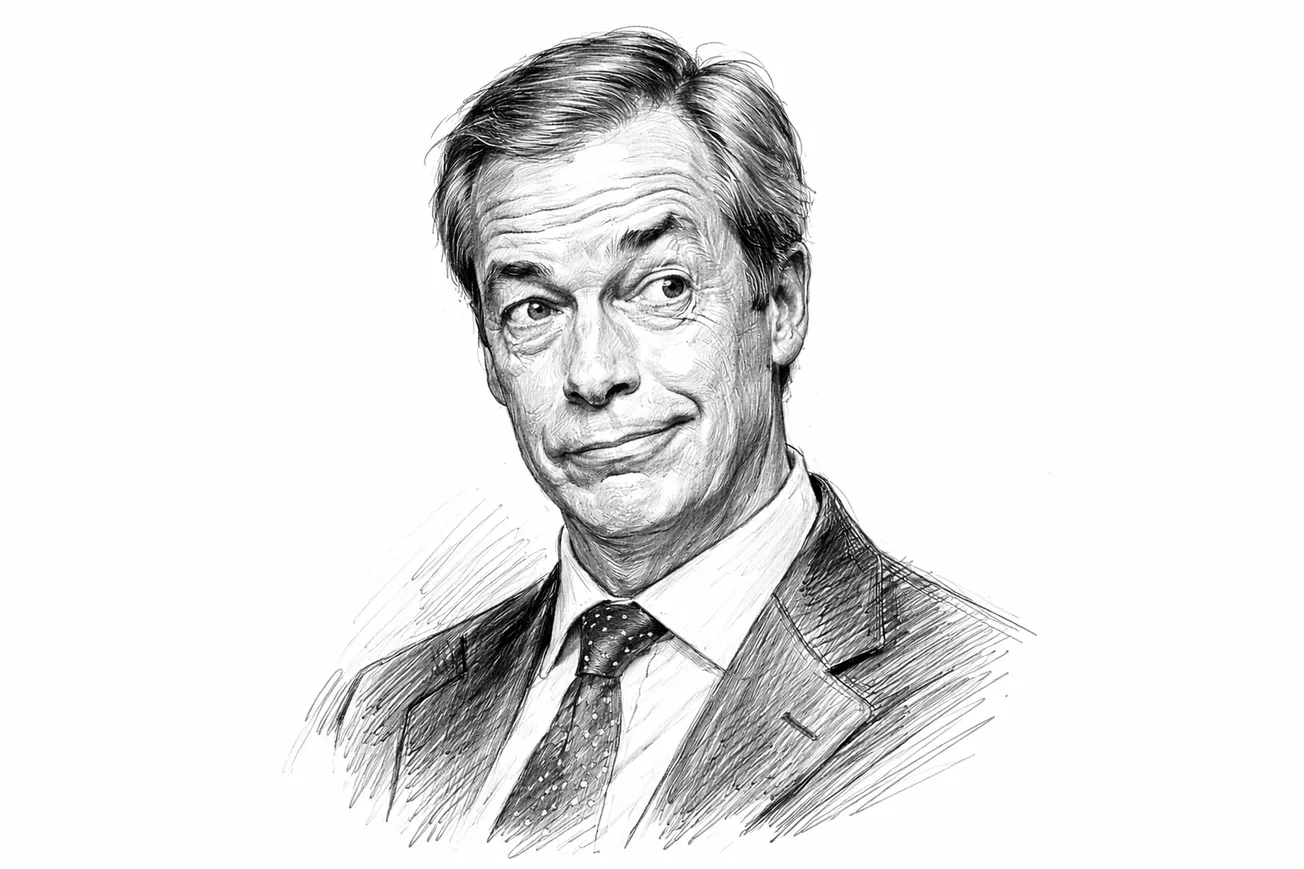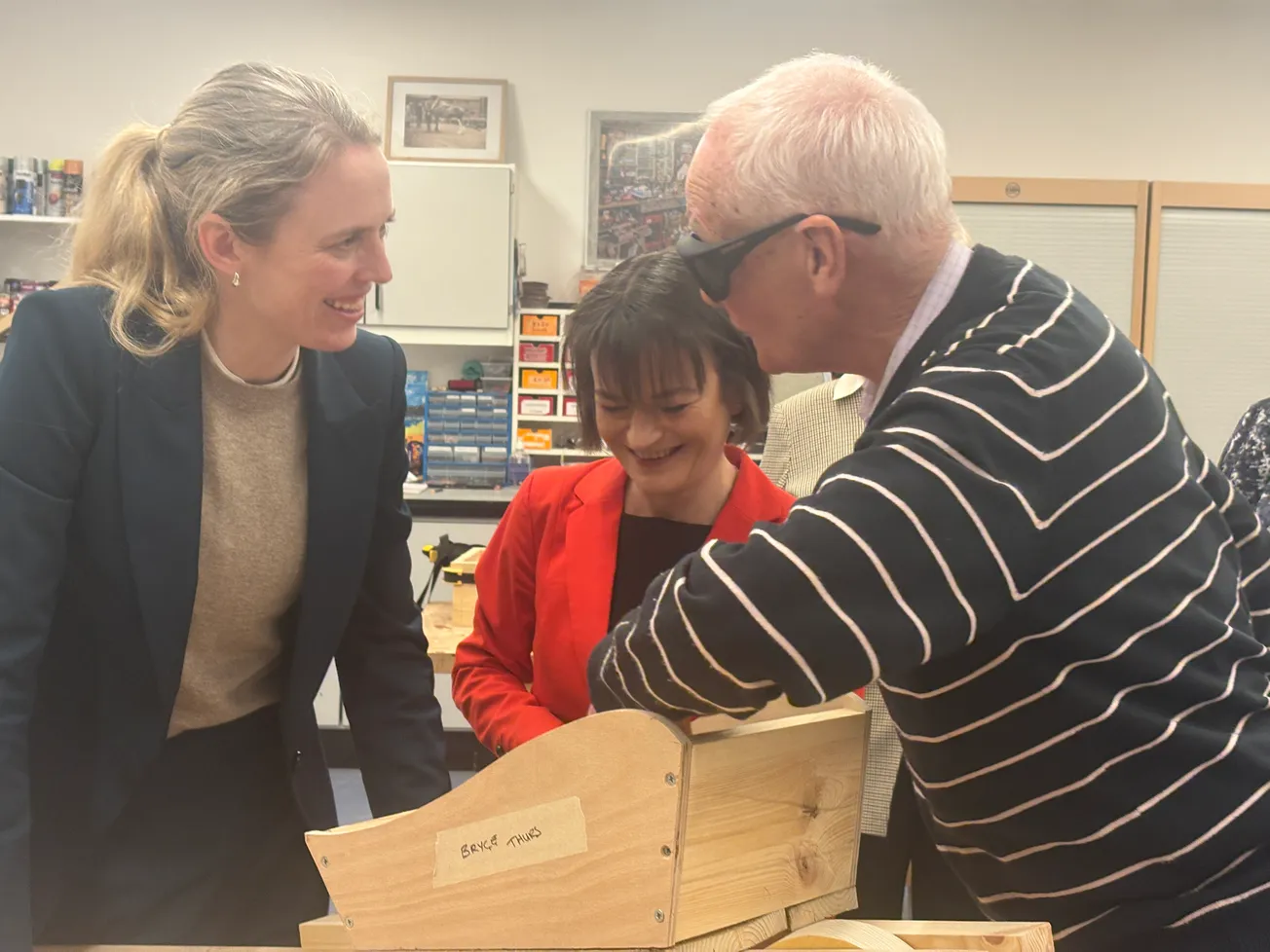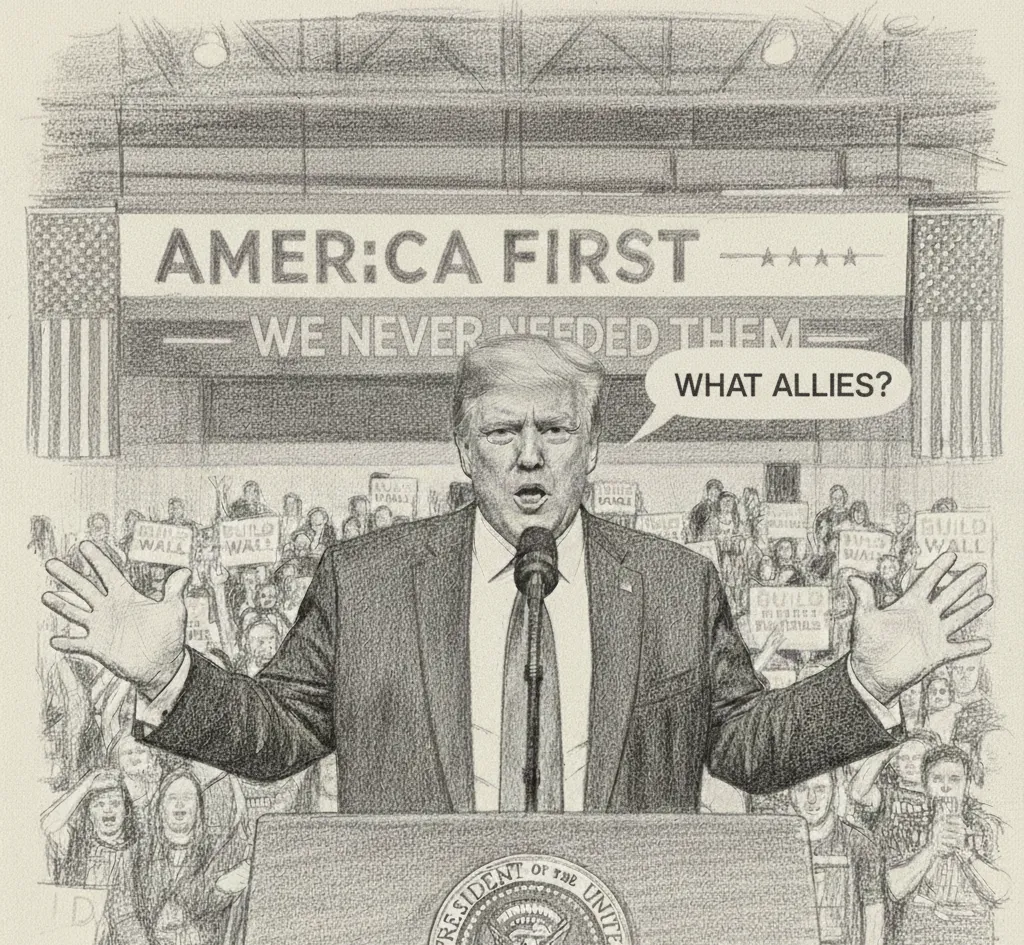We sat down with Olivia Cox – a former British Army officer turned TV presenter, fitness coach, and fashion influencer – to discuss her remarkable journey from military life to the media spotlight. In this candid, conversational interview, Olivia opens up about the identity shifts she navigated after service, and how she’s using her platform to inspire fellow veterans. She also shares behind-the-scenes stories and reflects on the surprising ways her two worlds overlap. Read on for an insightful chat that ranges from deep reflections to lighthearted moments with Olivia.
Your journey has taken you from the British Army to the worlds of media, fitness, and fashion. When you look back on that transition from military to civilian life, how would you sum it up? What was that change like for you personally?
Walking away from the military felt like walking away from a family. The Army is more than just a job - it’s an entire lifestyle. The routine and structure in the regulars (and - to a certain extent - in the reserves) is something that isn’t replicated in civilian life, and although there is a sense of freedom in not having to stick to that anymore, it can leave you feeling slightly lost. It’s an entire lifestyle shift. I found leaving my time in the regular Army the most challenging - I was living in the Officers’ Mess in Germany, which had a real sense of community. You are essentially living with your colleagues - you eat together, train together, hang out together. We didn’t have friends and family we could easily visit like we might have based in the UK, so we’d spend weekends with each other.
Did you ever imagine, while you were still serving, that you’d end up working in television, fitness, or fashion? Or was the idea of a media career something that only popped up on your radar after you left the Army?
I honestly have never had a career plan. The Army wasn't on my radar at all until I snuck in the back of a Colonel's speech at my school's career evening. I was waiting to hear a lawyer speak but he was running late so thought I might as well go in to stay warm. Media had always been an area I thought I'd end up in - my father is a BAFTA winning film editor, so I spent a lot of time visiting him on set or in the edit suite when I was growing up.
What ultimately motivated you to take the leap and leave the Army for a new path? Was there a particular moment or influence that made you say, “Okay, I’m going to pursue journalism and presenting now,” or was it a gradual realisation?
I was in the regulars on a short commission so the choice at the end of my return of service was to go back to Sandhurst for the full year, go back for another short course to transfer into the TA, or leave entirely. At that point, I wanted to go to university, so opted for a TA commission. That was the toughest transition - I went from living on base in Germany to being surrounded by students who’d never left home before. I felt like I’d come from a different planet and missed the feeling of belonging that I'd had at 4th. I started planning to leave and do a regular commission, but then found my place within the TA and settled in. I felt like I'd found my people again. After my degree, the plan was to continue in the TA. I never really planned to leave - I transferred from Exeter to HAC when I moved back to London and was due to join a hills course when someone very close to me was killed on tour. I’d known him pretty much my entire time in the Army, and my whole world sort of imploded. I went into training the following week and found I couldn’t stand to be in that environment anymore so walked away. It wasn’t a plan, wasn’t a decision, more a reaction. At the time, it felt like the only way to keep my head above water.

Many veterans say that leaving the service means leaving behind a piece of your identity. Did you find that after you hung up your uniform you had to rediscover who you were outside of the Army? How did you navigate that personal identity shift?
To be honest, I don't think I was really in uniform long enough to properly experience that. I was also young enough that I was still figuring out a lot about myself. That said I think the Army (and Sandhurst in particular) changed a lot about me in terms of my priorities and what is important to me, which has stuck with me.
Stepping into the media and fashion scene after the Army must have been a bit of a culture shock. What were some of the biggest differences or surprises you encountered in civilian life and the media industry that the military hadn’t prepared you for?
Probably the lack of structure and routine was the biggest change. The Army places a lot of emphasis on integrity and accountability, so switching to civilian colleagues meant re-learning that this isn't necessarily the case in all environments.
On the flip side, did you notice any unexpected similarities between life in uniform and your new life in media? I know you’ve joked that training with the Army and London Fashion Week both involve a lot of “hurry up and wait.” Can you explain what that meant for you, and are there other ways these two worlds had more in common than people might think?
The Army taught me a lot of transferable skills that have stayed with me - things like time management and being able to make decisions / working under pressure. Ultimately, the Army operates like a mini version of civilian life so there is inevitably some cross-over.
You wear so many hats now – TV and radio presenter, blogger, personal trainer, fashionista. How do you handle switching between all these roles? Do you ever feel like you’re juggling different versions of yourself, or do they all somehow feed into one another as part of who you are?
I actually think I thrive under pressure - I quite enjoy problem solving and multi-tasking. It's possibly not the healthiest way to operate, but I like to see my days as a challenge.
Do you still bring any military habits into your everyday civilian life? For example, are you up at dawn for a workout because Army life ingrained that in you, or do you catch yourself using military lingo when you’re working with your team?
Fitness has become a huge part of my life, which I think is largely down to the structure it gave me from a young age. Joining the Army came right at the start of my career, so the habits were really formative. When I catch up with Army friends there's something very comforting about hearing the old military lingo. I wasn't in long enough to really adopt it myself, but I love hearing the old chat. It's like going home.
Walk us through a day in your life now. Is there even such a thing as a “typical” day for you, given everything you’re involved in? How do you find balance amid all the different projects you have on your plate these days?
Zero typical days - which is kind of how I like it, keeps things interesting. I guess the one constant is fitness - I do an F45 class every day at 12.15. I'm pretty dogged about that - I will move mountains to make sure I can get there. I find that's my time to switch off, have a brain break. No matter how tired I am walking into class, I'll always feel re-energised afterwards. And that's really important for me - there is no-one else directly involved in my day-to-day, so motivation, productivity, proactiveness, it's all down to me.
You recently launched a fitness and nutrition app called Boss Up. What inspired you to create that? Does it tie back to the passion for health and discipline that you honed in the Army, and what do you hope people get out of it?
Boss Up came around after I had a bad injury during lockdown, and for the first time in my life wasn’t able to train. I realised what a huge impact fitness has on all areas of my life - it is my own personal therapy, it gives me structure and routine…. It is something I can rely on, and something that I can directly control, even when I feel other areas of my life lack stability. Having that taken away from me and having to start again from scratch was extremely difficult and humbling. I realised I wasn’t alone in this struggle and wanted to put something in place for others who might be feeling lost or might not know where to start in feeling like themselves again. Creating Boss Up was extremely cathartic for me and gave me a sense of purpose again. I hope people will see Boss Up as a way to start (or re-start) a fitness journey - it is designed to be inclusive, so anyone can use in no matter their starting point. The goals are to cut through the elitism of the fitness industry. You don't need to be pre-fit, and you don't need access to a fancy gym. You just need yourself.
In addition to your fitness ventures, you’ve done sports broadcasting (we’ve seen you covering motorsport events) and you still engage in the fashion and beauty world from your Marie Claire days. How important is it for you to keep all those passions alive? Do you ever think you’ll narrow your focus to just one area, or do you love the variety too much to give any of it up?
Honestly? I love the variety. I have never had a plan per se, but I do think there is huge cross-over in what I do. Beauty, sport and fitness all feed into my passion for wellness.
Looking ahead, what’s on the horizon for you? Are there any big goals or dreams you’re still eager to chase in the next few years – maybe writing another book, landing a particular TV hosting gig, or even exploring a completely new field?
I’m focused for now on my fitness business.
You were breaking the mould in some ways – going from the very male-dominated world of the Army into industries like beauty, fashion, and media. Did you encounter any preconceptions or stereotypes as a female veteran stepping into those spaces, and how did you handle that?
When I decided I would apply to join the Army, I was met with stereotypes and pre-conceptions all along the way. I was too small, too blonde, too girly. These sorts of things hung around during my time with the Army but were sort of more motivating than anything else. Especially with the regulars, I wanted to exceed expectations and out-perform my male counterparts.
For other veterans leaving the service – especially women – what advice would you share? Is there something you wish someone had told you when you were first making the jump to civilian life and a new career?
Just do what you love and give yourself a break if it doesn’t go exactly how you imagined. The Army is by nature an extremely structured environment, and it takes time to adjust to setting your own goals and becoming totally accountable for yourself without that rigid routine. It's advice that is transferable in most areas of life but be kind to yourself. Find patterns and rituals that work for you and surround yourself by people who get you.
You’ve gone from the parade ground to the TV studio. Through all of that, what’s the biggest thing you’ve learned about yourself? Did you discover a quality or strength in yourself during this journey that you didn’t realise you had before?
I’ve always considered myself secretly quite shy, and I still get anxious standing infant of cameras or talking to large groups of people. But there’s a confidence in me that’s grown through all the different experiences. Not just confident to put myself out there, but confident to hold my own space and believe in myself. The nature of the work I do now is constantly facing uncertainty, the possibility of rejection when I go up for different campaigns, and the potential to be criticised on social media. I’ve learnt to have a pretty thick skin, and to prioritise myself when that’s needed.
You’ve worn a lot of different “uniforms” in life, both literally and figuratively. What does being a veteran mean to you at this stage, after everything you’ve done since the Army? Do you still feel a strong connection to the military community now that you’re in such a different arena?
The Army will always hold a very special place in my heart. I love when I get the opportunity to work with military charities or meet beneficiaries - it’s so inspiring.

Out of everything you’ve accomplished so far, what moment or achievement are you most proud of? Is there one highlight that stands out when you reflect on how far you’ve come since your days in uniform?
It’s hard to pick one moment, but walking into Buckingham Palace for an internship with HM The Queen’s press office was a real highlight. Even though I disappointed all the tourists each time I walked out of the gates at the end of the day, and they were hoping they’d just spotted a royal! Probably the moment I'm most proud of was running the London Marathon. I was running in memory of a close friend - we'd always said we'd run one together.
And just for fun - which gave you more butterflies – your first day arriving at Sandhurst, or the first time you went live on television?
I was absolutely petrified my first presenting role. Sweating, shaky voice kind of petrified. But then I realised - a camera is an inanimate object. It couldn’t hurt me. I knew the parameters of what I was doing, and the only live feedback I was getting was a very calm producer in my ear. By contrast, Sandhurst was a total unknown. I had no idea what was to come and had immediate feedback from the DS each of the (many) times I messed up. Sandhurst butterflies win, hands down. That said, I think it’s important to remember that Sandhurst wasn’t all bad. It was a shared experience and memories of tiny moments that I’ll never forget. Things that will forever mean nothing to anyone else but meant everything to us of GYC 061.
